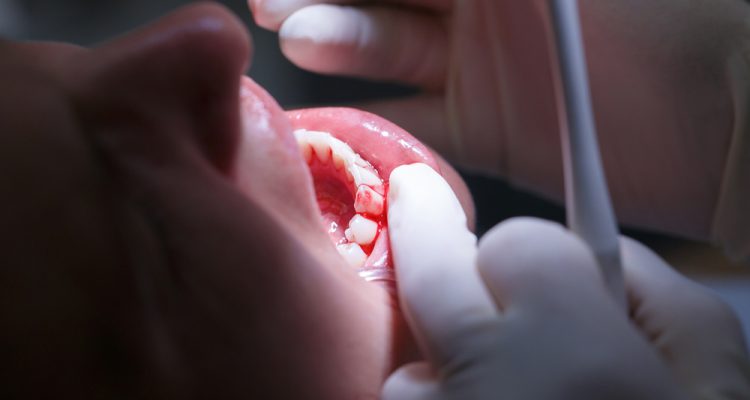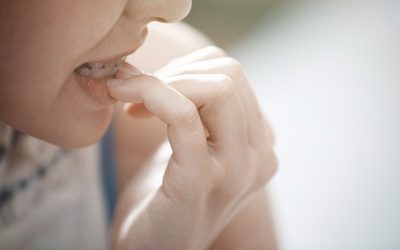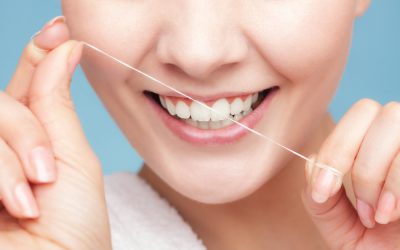You’re brushing your teeth when you notice pink flecks in the foam when you spit out the toothpaste. Or perhaps you’re eating when you taste the metallic tang of blood in your mouth. Experiencing gum bleeding can feel scary if you don’t know what’s causing it. But before you panic, know that gum tissues bleed for multiple reasons and some of them are completely normal.
Keep reading to learn more about what causes gums to bleed and when you need to contact your dentist for care.
Common Causes of Gum Bleeding
Several factors cause gum tissue to bleed, and not all of them are serious or require medical attention. You may experience small amounts of gum bleeding from:
- Brushing too aggressively or brushing with a firm-bristled toothbrush. Vigorous toothbrushing irritates gum tissues and may cause your gums to bleed. Additionally, brushing with hard or firm bristles also injures the sensitive tissues and may cause bleeding. The American Dental Association (ADA) recommends gently brushing your teeth with a soft-bristled toothbrush.
- Flossing too aggressively. Snapping the floss against your gums irritates the tissues and may cause gum bleeding. When you floss, gently slide the floss between your teeth and move it along the curve of each tooth instead of snapping it straight down into your gums.
- Starting a new flossing routine. When you begin flossing regularly, it’s normal for your gums to bleed for the first few days. The tissue needs time to adjust to the increased stimulation, and bleeding should stop within 1 week. The more consistently you floss, the stronger your gums will become.
- Experiencing a trauma or injury. Sharp foods or objects can cut or nick your gum tissue and cause bleeding. Don’t put non-food items in your mouth to reduce your risk of injury.
- Having ill-fitting dental hardware. Poorly fitting dentures, braces, bridges, and crowns rub against your gums, and may even cut into the tissue to cause bleeding. If you have pain and irritation from your dental hardware, contact your dentist to have it adjusted to fit properly. For more tips on dental hardware care, read our blog here.
Serious Causes of Gum Bleeding
Some causes of gum bleeding are more serious and require medical attention. If you experience gum bleeding that persists for several days, or gum bleeding accompanied by other symptoms, then contact your dentist as soon as possible. Significant causes of gum bleeding include:
- Plaque build-up. Plaque and tartar (hardened plaque) build-up along the gum line is one of the most common causes of gum bleeding. A sticky film of plaque forms when the bacteria in your mouth feed on sugars from the food you eat. Sugar triggers the bacteria to release an acid that eats away tooth enamel and causes cavities and gum disease. If you eat a lot of sugary and starchy foods, or don’t practice good flossing and brushing, then plaque build-up on your teeth and gums cause irritation, inflammation, and gum bleeding.
- Gingivitis or periodontitis. Gum bleeding accompanied by swelling, redness, tenderness, or bad breath is a sign of early gum disease (gingivitis). Gingivitis develops from plaque build-up and poor oral hygiene. If you don’t treat gingivitis, it will progress into severe gum disease (periodontitis). Periodontitis causes bone loss, receding gums, abscesses, and tooth loss.
- Pregnancy gingivitis. Fluctuating hormones during pregnancy can cause swollen, tender gums, gum bleeding, and gum disease.
- Certain medications have blood thinning effects and may increase your risk for gum bleeding. Medications include anticoagulants, immunosuppressants, and aspirin.
- Vitamin deficiencies. Deficiencies in Vitamins C and K may cause gums to bleed.
- An underlying medical condition. Bleeding gums may be one of the symptoms of an underlying medical condition like diabetes, bleeding disorders, or leukemia.
How to Keep Your Gums Healthy
Practicing a good oral hygiene routine can go a long way toward treating minor causes of gum bleeding, preventing future bleeding, and keeping your gums healthy. Brush your teeth twice a day for 2 minutes each with a fluoridated toothpaste and a soft-bristled toothbrush. Floss and rinse with mouthwash once a day. Replace your toothbrush regularly – approximately every 3 months or when the bristles fray.
Eat a healthy diet high in fresh fruits, veggies, and other whole foods, and low in added sugars, simple starches, and processed ingredients. Limit your intake of sugary, acidic drinks like juices and sodas. If you smoke, try to quit as soon as you can. Smoking and chewing tobacco are leading causes of gum disease.
Most importantly, visit your dentist regularly for check-ups and cleanings. At Boyett Family Dentistry, Dr. Boyett is here to help you identify and treat oral conditions like gum bleeding before they worsen and cause permanent damage. Contact our office today to schedule your next appointment.





